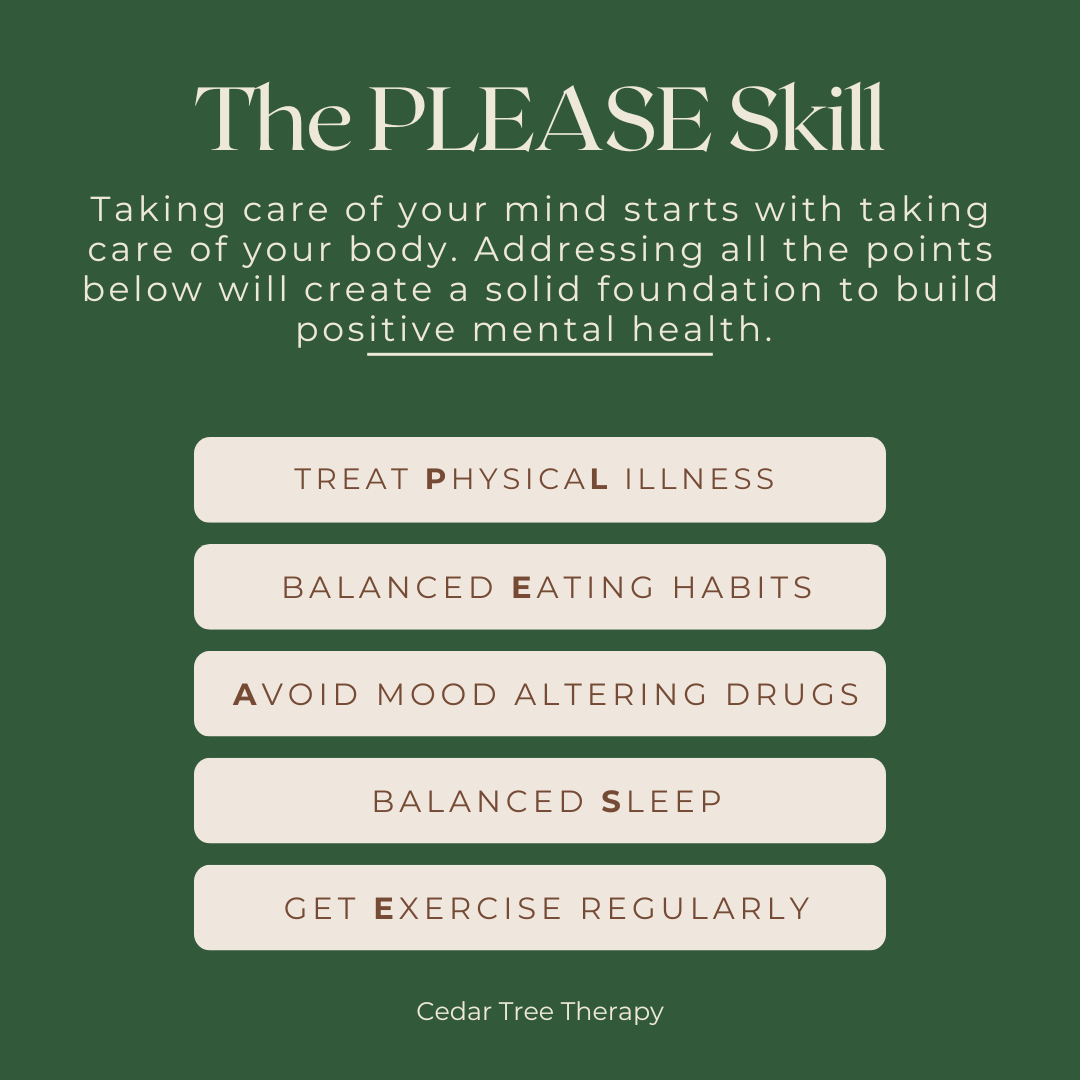Taking Care Of Your Body To Take Care Of Your Mind
We have all been through it - we’ve all had one of those days where it feels like nothing can go right. You didn’t sleep well last night. You didn’t get your morning work out in. You were running late so you skipped breakfast. Then, you lost your patience with your child, and had an angry outburst at your partner. Small things that wouldn’t normally irritate you are making you furious. Why is this happening? You didn’t feel so out of control yesterday, what has changed?
What has happened is that several vulnerability factors have built up to make you more susceptible to feeling emotionally out of control. In order to become less likely to be controlled by our emotions, we must decrease the things that can make us susceptible to these emotional vulnerabilities. Taking care of our body helps our mind and our mood as it builds a buffer to help us be less impacted by distress and fosters emotional resilience.
The PLEASE Skill comes from dialectical behavioural therapy (DBT) and is an effective emotion regulation skill.
PLEASE is an acronym that reminds us of all the things that we can do to reduce our emotional vulnerabilities.
Treat Illness: See your doctor for your regularly scheduled checkups, take medications as prescribed, treat your illness and injuries.
Limit Substance Use: Excessive alcohol or drug consumption can negatively impact your emotional state. After all, they are called “mood altering substances”. Practice moderation and work on developing alternative coping strategies. Talk with your therapist to dig deeper about why you use substances to cope.
Eat Regularly: Skipping meals or following restrictive diets can affect your mood and energy levels. Maintain a consistent and balanced eating pattern. Eat at regularly scheduled meal times. Avoid foods that can make you feel emotional (for example, caffeine is commonly linked to increased anxiety).
Prioritize Sleep: Lack of sleep can lead to heightened emotions and decreased coping abilities. Prioritize sleep and establish a consistent bedtime routine. Wake up at the same time each day, even on weekends. Ask your therapist to share any sleep hygiene strategies they have with you.
Get Exercise Regularly: Getting exercise does not need to be extreme or perfect. Simply moving your body in a way that you enjoy will lead to significant improvements to your mental health.
Remember that taking care of your body helps to take care of your mind. It helps to build a strong foundation for positive mental health. Sometimes, mental barriers or logistical barriers come up that make taking care of your body difficult. Discuss these barriers with your therapist to dive deeper into the unique complexities of your personal situation.
About the Author
Dana Etherington is an Occupational Therapist, Psychotherapist and the Owner of Cedar Tree Therapy, a group psychotherapy practice located in Brooklin, Ontario.


